On June 18, 2023, Products That Count Founder SC Moatti spoke at The Next Web 2023 Conference in Amsterdam. Here is the transcript of her remarks.

Ladies and gentlemen, distinguished guests of The Next Web 2023 conference:
I want to begin with a reflection on trends and fashion. Imagine a striking outfit that catches your eye. You may love it, but you hesitate to wear it again because it screams “2022.” The same can be said for NFTs. Now that generative AI has taken center stage, we need to remember that technology, like fashion, has a tendency to trendiness. To remain grounded, we must remember that building great products remains paramount. But how do we define greatness?

Let’s take a stroll down memory lane. There was a time when products were boxed, and success was measured by the journey from creation to shipment and the ability to sell well. Then, 20 years ago, Marc Benioff, the visionary founder of salesforce.com, revolutionized the concept of software with cloud-based products. He boldly declared, “I am not selling software,” recognizing that his product transcended the confines of a physical box. This shift led us to seek a new milestone—product-market fit. We envisioned it as a linear path, but in reality, it’s a twisty, unpredictable journey. Product-market fit, my friends, is a beautifully messy process, and not easy to describe, but we still recognize greatness when we see it. Consider the likes of Uber—a shining example of a remarkable product. We understand its brilliance, yet struggle to articulate its essence.
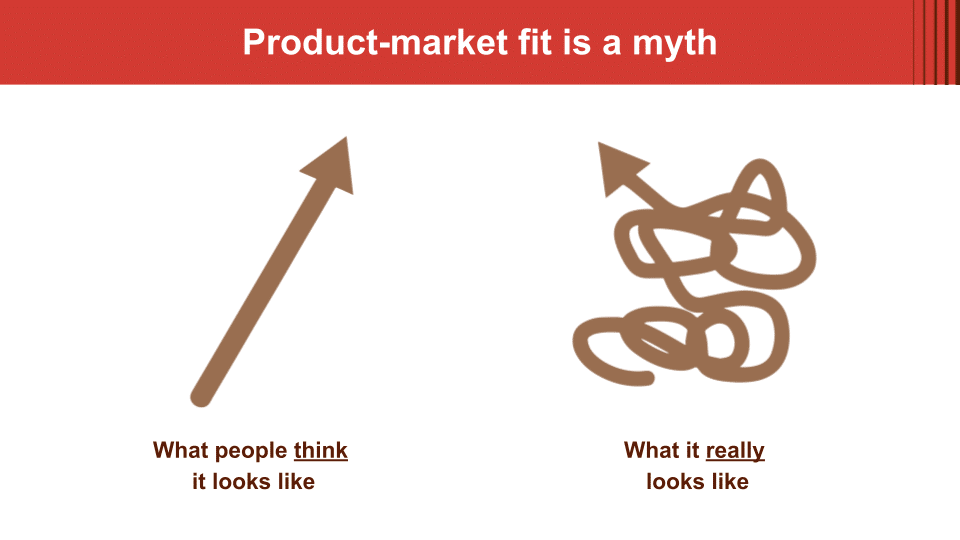
What makes a great product?
For the past 20 years, I have dedicated myself to answering this very question. In the first decade, I built products myself, while the next decade involved collaborating with 300,000 product managers at Products That Count, and investing in groundbreaking innovations at Mighty Capital. Through this journey, one truth has emerged—it’s easy to describe greatness, but executing it is the real challenge. Great products elevate us, making us better individuals because technology is an extension of ourselves. When envisioning a great product, we must envision a great person—a fusion of mind, body, and spirit.
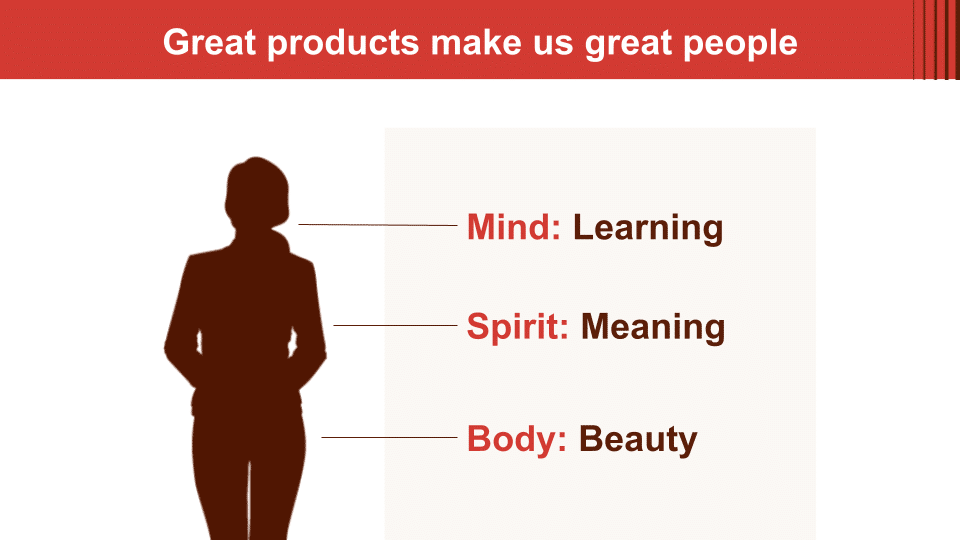
The Beauty Rule
Let’s first explore the rule of beauty. Defining beauty goes beyond pretty pictures. Two camps exist—the rational and the creative. The rational camp seeks formulas like the golden mean in architecture or the harmonics of Pythagoras in music, uncovering beauty through precise proportions and order amidst chaos. We witness the efficiency-driven manifestation of beauty in platforms like OpenAI, where mountains of data yield tailored answers to our questions. On the other hand, the creative camp aligns with Leo Tolstoy’s belief that beauty lies in the eyes of the beholder. Steve Jobs shared a similar outlook, emphasizing the importance of a “wow factor” in products. Consider Airbnb’s wishlist feature, which replaced a star (rational approach to properties I might want to rent) with a heart (emotional connection with places I simply love). This was a prime example of evoking emotional responses rather than purely rational ones, and the switch from a star to a heart resulted in a 30% difference in engagement, showcasing the profound impact of aesthetics on user experience. Beauty encompasses both efficiency and the power to evoke emotions—a delicate balance to strike.
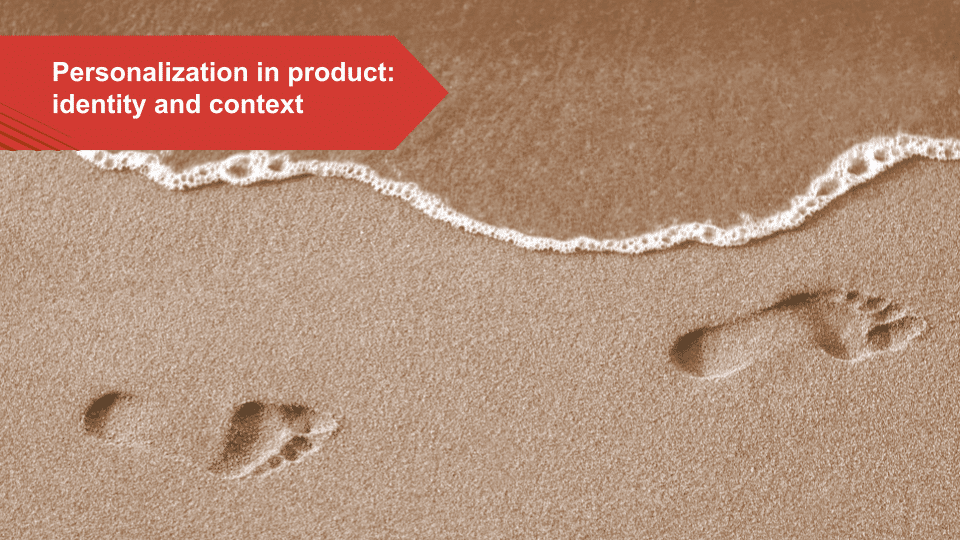
Meaning
Let us now delve into the rule of meaning, where personalization and privacy intersect. Personalization in product hinges on identity and context. Identity comprises health data, photos, calendars, while context encompasses location and social connections. Accessing this information is crucial for building exceptional products. Blindly operating as we did in the Mad Men or even Google era is no longer feasible. The key question becomes: when should we personalize the user experience? Must-have permissions should be acquired as early as possible, such as WhatsApp’s real-time messaging, where push notifications are mission-critical. On the other hand, nice-to-have permissions, like accessing the camera roll to send a photo, can be requested later in the process. Balancing personalization with privacy is a delicate dance, involving effective mapping of individual, corporate, and governmental privacy risks. Identity theft remains a clear individual risk that we must protect against. Corporations, within defined constraints, can use our data—an agreement best communicated through clear terms in end-user license agreements (EULAs). Government involvement resides in a gray area, where maintaining a balance between privacy and security is paramount.
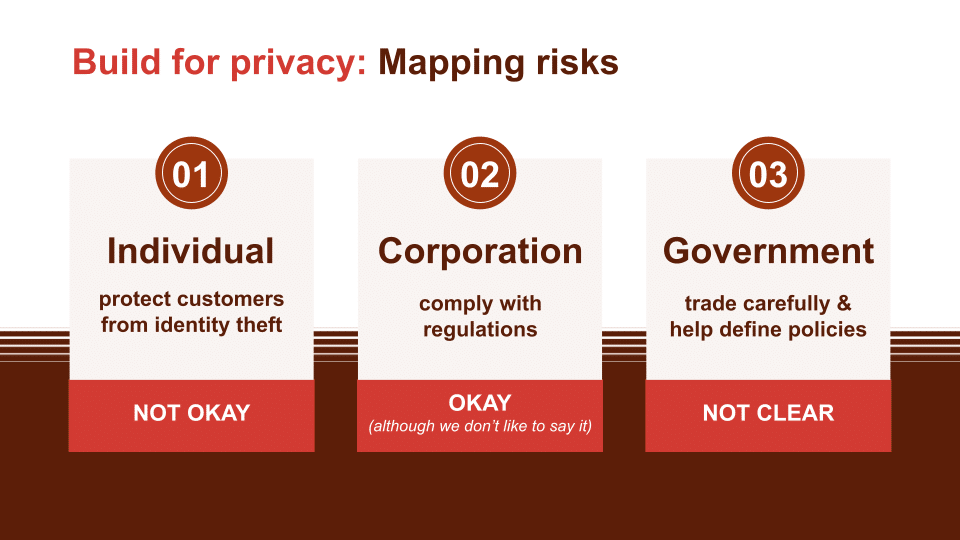
The Mind Rule
Lastly, let’s explore the mind rule—the principle of learning. I share two key insights into learning from products. First, the wisdom of crowds reveals valuable trends. Our Product Awards process, driven from the bottom up with over 4,000 nominations, highlighted a significant shift in sales strategies. Entrepreneurs now sell directly to product teams, transforming product managers into internal champions who advocate for their solutions. This approach has yielded remarkable results, with companies like Amplitude experiencing a 30% acceleration in sales. Second, the rising influence of Chief Product Officers signifies a shift in organizations. These individuals now embody the voice of the customer, granting product teams, and Chief Product Officers, increased influence. We observe a specific breed of product-first companies emerging, who prioritize building the product and vision before delegating to engineering. Digital transformations in these product-first organizations have proven three times more successful than their counterparts.
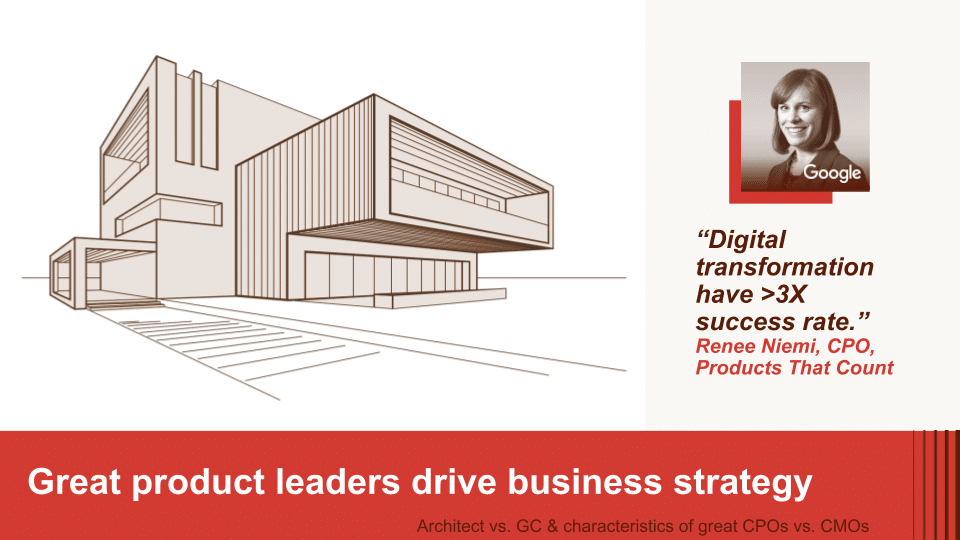
In conclusion, let us remember that greatness in products lies within the philosophical trinity of mind, body, and spirit. As we shape the future, we realize a positive vision of technology—one that elevates us as individuals and makes us better in every way.
Thank you.
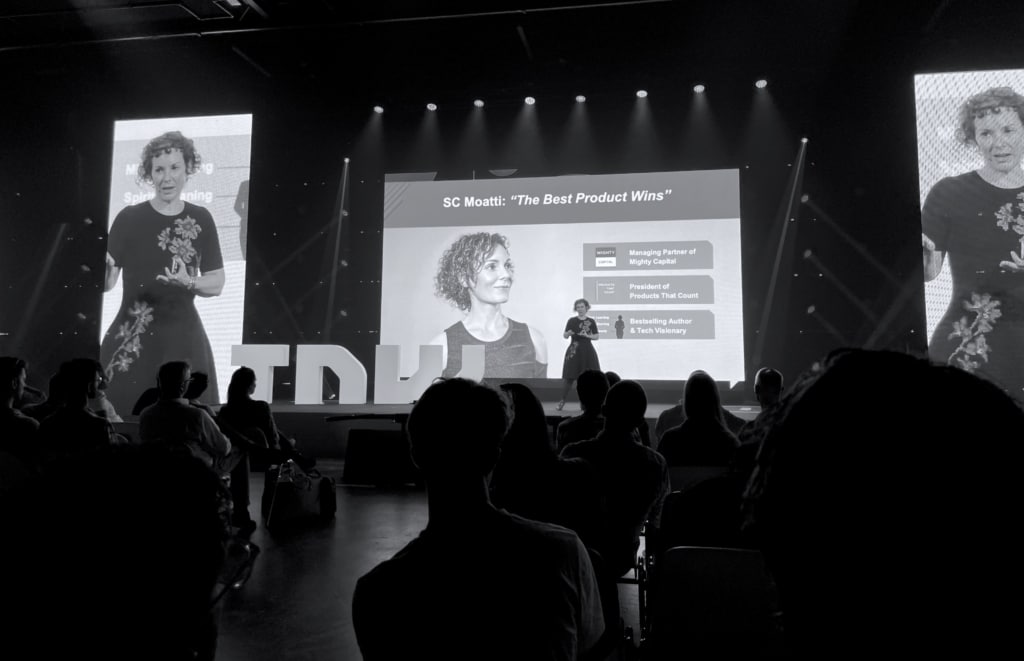
About the speaker
SC Moatti is the Founding Managing Partner of Mighty Capital, a Silicon Valley venture firm, and chairs the Board of Products That Count, a 501(c)3 nonprofit that helps everyone build great products and inspires 500,000+ product managers. SC earned her reputation as a product visionary and technology investor during the mobile era, when she built products that billions of people use at Meta/Facebook and Nokia, won industry awards and nominations from the Wall Street Journal and the Emmy's, and wrote an award-winning bestseller on what makes a great product. She has been called “a genius at making products people love” and named a Top Voice in venture capital on LinkedIn. SC frequently speaks to product and investing trends, including a recent keynote at TheNextWeb, a fireside chat at Fortune Most Powerful Women Summit, featured articles in the Harvard Business Review and TechCrunch, and interviews on NPR (Tech Nation) and CNBC (Closing Bell.) She serves on the boards of public and private companies, lectured on product and investing at the executive programs of Stanford and Columbia Universities, earned a master’s in electrical engineering and a Stanford MBA, and is a Kauffman Fellow and member of YPO.